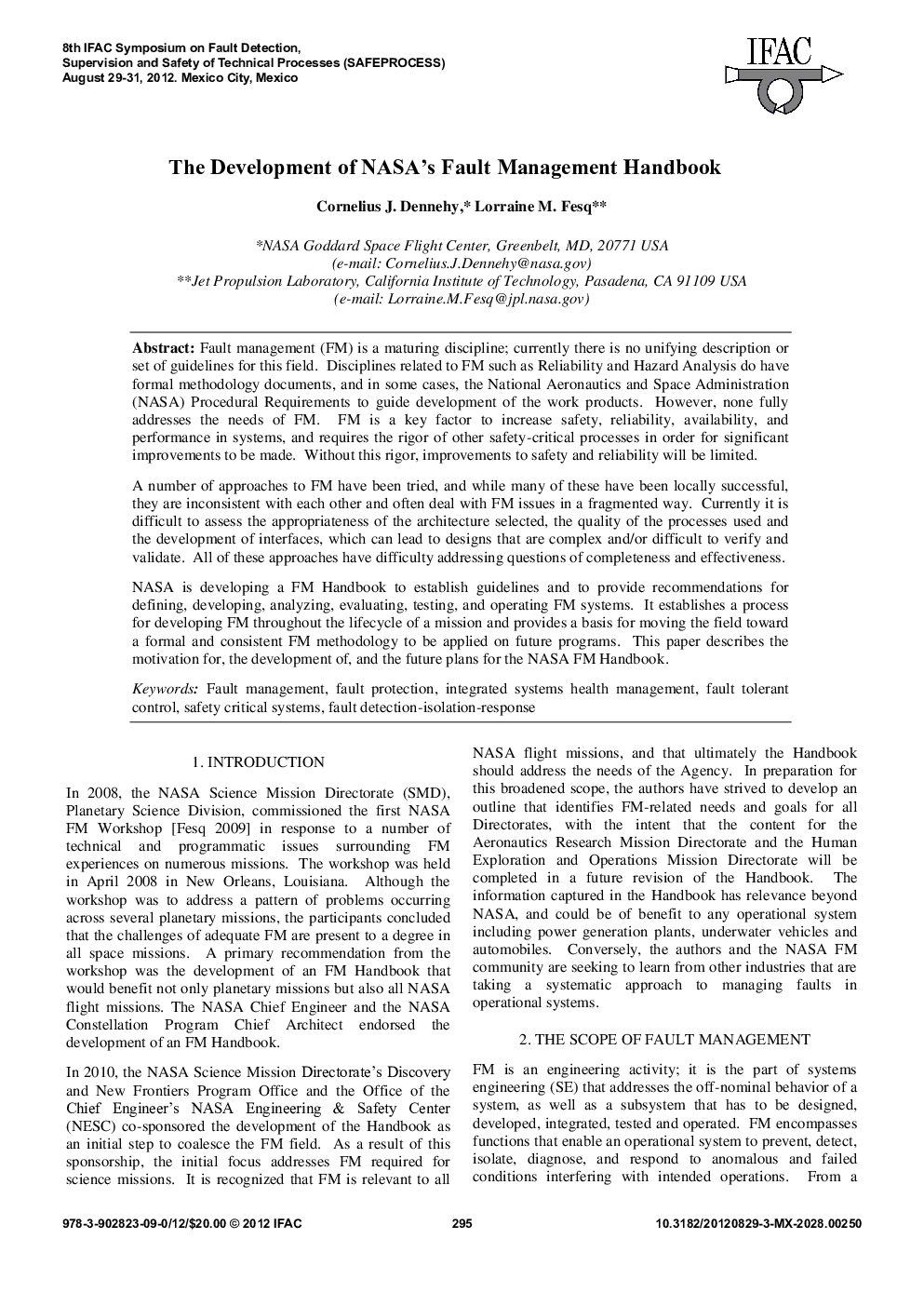| Article ID | Journal | Published Year | Pages | File Type |
|---|---|---|---|---|
| 709609 | IFAC Proceedings Volumes | 2012 | 6 Pages |
Fault management (FM) is a maturing discipline; currently there is no unifying description or set of guidelines for this field. Disciplines related to FM such as Reliability and Hazard Analysis do have formal methodology documents, and in some cases, the National Aeronautics and Space Administration (NASA) Procedural Requirements to guide development of the work products. However, none fully addresses the needs of FM. FM is a key factor to increase safety, reliability, availability, and performance in systems, and requires the rigor of other safety-critical processes in order for significant improvements to be made. Without this rigor, improvements to safety and reliability will be limited.A number of approaches to FM have been tried, and while many of these have been locally successful, they are inconsistent with each other and often deal with FM issues in a fragmented way. Currently it is difficult to assess the appropriateness of the architecture selected, the quality of the processes used and the development of interfaces, which can lead to designs that are complex and/or difficult to verify and validate. All of these approaches have difficulty addressing questions of completeness and effectiveness.NASA is developing a FM Handbook to establish guidelines and to provide recommendations for defining, developing, analyzing, evaluating, testing, and operating FM systems. It establishes a process for developing FM throughout the lifecycle of a mission and provides a basis for moving the field toward a formal and consistent FM methodology to be applied on future programs. This paper describes the motivation for, the development of, and the future plans for the NASA FM Handbook.
